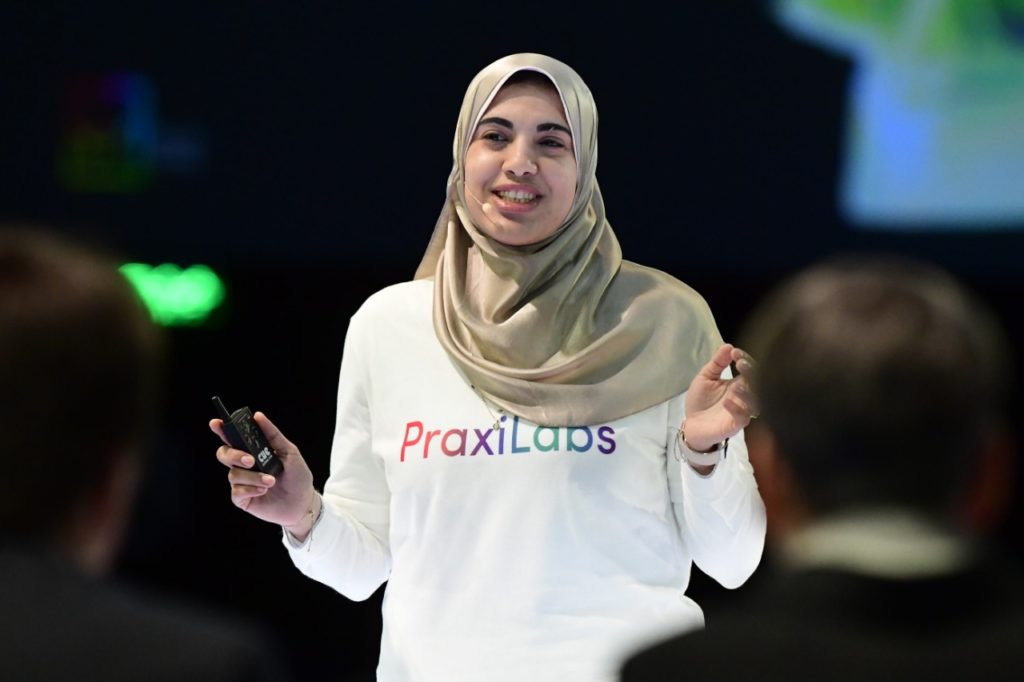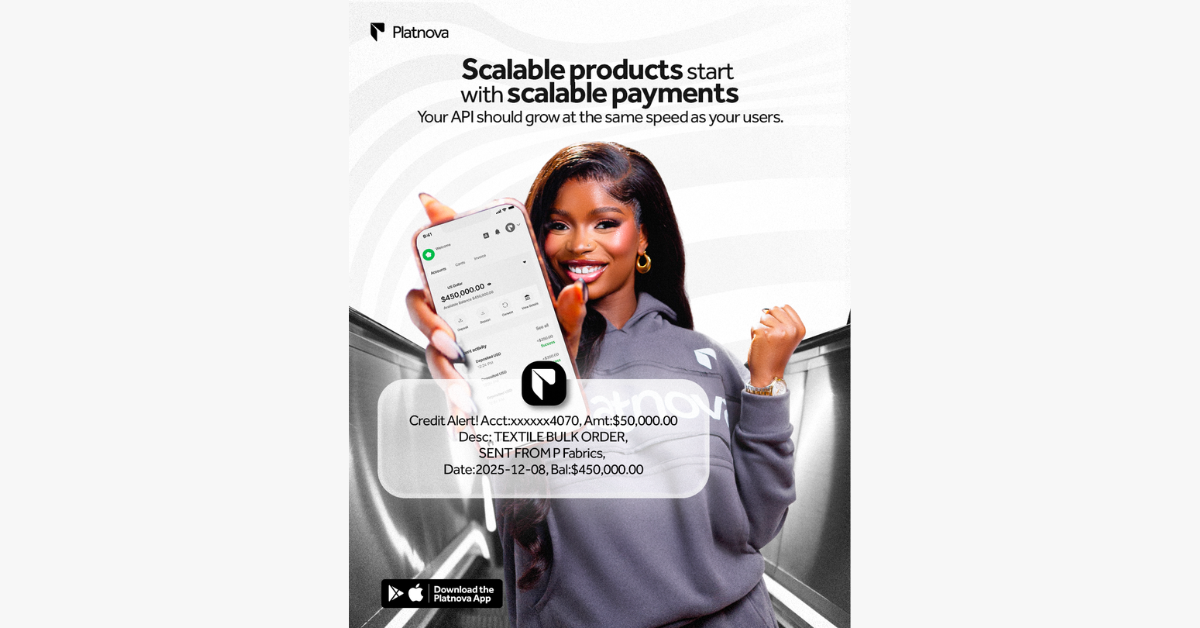The Africa’s Business Heroes (ABH) prize is an annual competition for African entrepreneurs which offers grant funding, training programs, mentorship, and ecosystem support. Every year, it cumulates in a grand finale that sees the top 10 finalists pitching their businesses to a panel of esteemed judges to win a share of a $1.5 million grant. This year’s annual Summit and Grand Finale and 5th anniversary celebration is scheduled to take place on 23-24 November in Kigali, Rwanda. You can sign up to attend the event in person or virtually here.
When Jack Ma visited Africa in 2017, one thing that stood out to him was the ingenious and inventive spirit of the entrepreneurs on the continent. Now in its fifth year out of its 10-year commitment, the Africa’s Business Heroes competition has spent years identifying the cream of the crop in the African business ecosystem, helping them refine their ideas, and giving them a global stage to reach a bigger audience and amplify their impact.
ABH finalists have used the grants given to them in this competition to expand their teams, invest in technology and assets, and expand their footprint locally and internationally. Previous winners include Temie Giwa-Tubuson, founder of LifeBank and one of BBC’s 2014 “100 women changing the world”. Her startup LifeBank is a medical distribution company that uses data and technology to help health workers discover critical medical products like blood and oxygen. She, like other ABH participants, has gone on to excel in her field. Post-competition, she won the Global Citizen Prize for Business Leaders and the Cartier Women’s Initiative Laureate Award. She expanded Life Bank’s operations to three new cities in Nigeria and launched in Nairobi and Kenya.
Among the top 10 finalists of the same year (2019) was Moulaye Taboure, CEO of Afrikrea (Cote D’Ivoire), who has also made impressive strides with his startup post-competition. Moulaye is focused on building a global platform to promote African culture and that led to the creation of Afrikrea.com, the leading “Made of Africa” fashion, art, and handicraft online marketplace. The marketplace has processed more than $4 million in sales across 101 countries and supports merchants from all over the world. Following the feedback from the ABH finale judges, Moulaye Taboure raised $6.2 million in a pre-Series A round while rebranding his company Afrikrea to ANKA. The company is now building its SaaS mobile infrastructure and has become one of the biggest African e-commerce exporters with DHL.
These two individuals are just examples of the innovators that make up the ABH talent pool. With the way the prize competition is set up, there is no losing, just lessons learnt and winning. The first prize winners, runners-up, participants, and even applicants who aren’t selected have gone on to help their communities in impressive ways and grow their businesses.
When asked about her experience, 2019 third-place winner, Christelle Kwizera of Water Access Rwanda, jokingly referred to her third position as losing the last round but also stated that it was “not a bad loss” because she still won $100,000 for coming in third. Post-competition, she was able to increase inventory for Water Access Rwanda and buy more efficient machines to continue making clean water accessible to her community. She credits the competition for giving her amazing advice and exposure and also creating massive networking opportunities to further her personal and business growth.
This is a sentiment that Khadija Elbedweihy, the 2021 first-place winner, also shares. In a chat with TechCabal, she describes the competition process as “rounds of learning”. “When other Egyptian entrepreneurs reach out to me to ask about the process and for advice, I tell them that you start learning from the very first minute you apply,” she said. “During the application process, you will learn a lot because the questions are very challenging. You really need to have actual data and not just simple answers. So you are validating and verifying every single aspect of your startup during your application.” This challenging competition process is what Elbedweihy attributes her startup, Praxilab’s success to both during and after the competition.
Elbedweihy is the founder of PraxiLabs, a startup which makes virtual science labs accessible to educational institutions and schools. When the team first applied in 2019, they didn’t even get in the top 50, but by the time they reapplied in 2021, they had improved their idea and processes so much that they went on to win first place. In anticipation of the upcoming 2023 Grand Finale happening in November, we at TechCabal caught up with Elbedweihy to find out what makes her and PraxiLabs one of Africa’s Business Heroes. In this chat, she tells us what made her ready to take on this competition, the impact the competition made on her, and the progress of Praxilabs post-ABH.
In conversation with Khadija Elbedweihy…

Uma: Let’s start from the top, how did you get into entrepreneurship?
Khadija: My story of entrepreneurship comes together with the story of PraxiLabs. So, I got my bachelor’s degree at Cairo University in Egypt and I was top of my class four years in a row. I wanted to continue my education because my family are all into education; some of them are professors at universities, for example, and my dad also told me that education was the solution. Whenever my family was sitting together at a family reunion, I always heard them talking about how any currently advanced country changed itself and its future through educating its youth. I was raised this way and this fuelled my passion for teaching. That’s why after finishing my bachelor’s degree, I started to think I needed to do my PhD because the next step would be to come back and teach students in university.
So I travelled to the UK to do my PhD there and, unfortunately, even though I was at the top where I was coming from, in the midst of other PhD students in the UK, I was at the bottom. It was not because I wasn’t capable or competent, but I realised that it was due to a complete lack of resources. When you compare what we have here in Egypt, to that of people coming from the UK, the US and other advanced countries, the difference in the resources we get is unfair.
So I worked on myself, and after four years, I was able to be in the same place as they were. But the thing is, it was very shocking for me that because of this lack of resources, huge talents in Africa wouldn’t be able to achieve their dreams or what they really want to accomplish. That was the time it hit me and I decided that I was going back to my home country and working on something related to education, so I could change this kind of unfairness and give the same opportunities that others have to underprivileged students in Africa. This is exactly related to how I got into entrepreneurship and also why I decided to start PraxiLabs.
Uma: I’m curious, why virtual labs? When you saw all these problems with resources in education in Africa, why did you think virtual labs could be one of the solutions?
Khadija: So my PhD is in Human-Computer Interaction and what I lean towards is always how to make technology work best for users. With my experience, when I first got to the UK and also engaged in STEM, I started looking around and really understanding more about the challenges in education in our home countries. One of the main challenges that always popped up was how lab experience was very, very difficult in our home countries. The problem is basically that there is no access to labs. If you have a lab, the access is very limited and you don’t get to do the same experiment your peers are doing a lot of times because of safety and cost; labs require expensive equipment. After I understood the problem, I started thinking of how technology would solve this problem. How can I give students in Africa the best lab experience with technology?
There was also evidence from research done by a lot of universities around the world to determine how useful using virtual platforms were. They were conducting this research on a very small scale of course, and it wasn’t on a specific product but they were finding that providing a virtual kind of experience for students increased their learning outcomes by at least 60% and their retention by 80%. So I used this evidence and this data to make sure that I was starting something that was already proven through research. I also wanted to focus on building a product specifically for the MENA region and Africa because there wasn’t anything like PraxiLabs in the region and that’s how the idea for virtual labs was born.
Uma: Let’s talk about ABH. What impact would you say participating in this competition had on you and PraxiLabs?
Khadija: Like I said before, you start learning right from the application process. We also got a lot of feedback from experts and mentors during the interviews and the judging rounds. These are top and prestigious people and it was really nice that even though we thought we were excellent, they made us improve even more. We also got amazing exposure and product validation through the prize. As a team, we felt that being chosen to participate in such a competition—one of the biggest competitions in Africa—and by those judges, was amazing credibility for us.
Uma: What was the prize money used for?
Khadija: Before the competition we were always bootstrapping, we did not raise funds at all and that is something I say with pride. We were always depending on our revenues and expanding our product and sales using our revenues only. When it was time for ABH, I remember telling the team “Yes, our bootstrapping is good, but it’s making us only add more experiments and simulations”.
To go into Africa, I understood that there was something very important we needed, which is a native app. Not every student has a laptop and not every student also has good infrastructure like a steady internet connection. I told my team that we had a challenge here. We needed a mobile app with an offline mode, and we needed to hire more people. So working on getting this app to function in offline mode for a year and a half would actually take exactly the prize money and that’s what we told the judges. We made it clear that this is what we were going to put the money into and we’ve done that exactly from 2020 until around half of this year.
We launched our native app three months ago and it’s just been exactly as we imagined-this is what Africa needs. We’ve not expanded into a lot of countries yet because this is just the beginning, but students in Egypt love the app so far and we will continue to expand in time.
Uma: What advice would you give to this year’s prize competitors?
Khadija: I have a lot of advice but the one that stands out for me is what I’ve been raised on. I always tell this to my daughter too because this is what my father told me when I was little and also in every hard situation of my life. There is a quote in Arabic, it’s like a poem and the translation of this quote is: “Dreams are not achieved through wishful thinking, but rather they are attained by hard work and effort.” So basically, when you hear this, this means that winning doesn’t come to people who are just feeling lucky, or people hoping and praying to be number one. It comes through a lot of work and a lot of effort.
When I was studying for the competition, and I’m saying studying because I was doing a lot of work, I was working as if I were in a quiz or an exam. I worked towards what I wanted to achieve. So whether it’s for the competition or for anything else, you need to work hard to be there. You need to believe in yourself and have a vision and a mission. Yes, business is good and money is good, but if you don’t think of a value that you will create, I don’t think that you will be able to pass the downs, and the downs are more than the ups when running a startup. So I believe you need to have a lot of resilience. This is how we (PraxiLabs) have done it and this is what I believe others can do as well.
You can reach out to ABH, for further enquiries. Register here for the ABH Grand Finale on 23-24 November, so you don’t miss out on who’s crowned Africa’s Business Heroes of 2023.

















